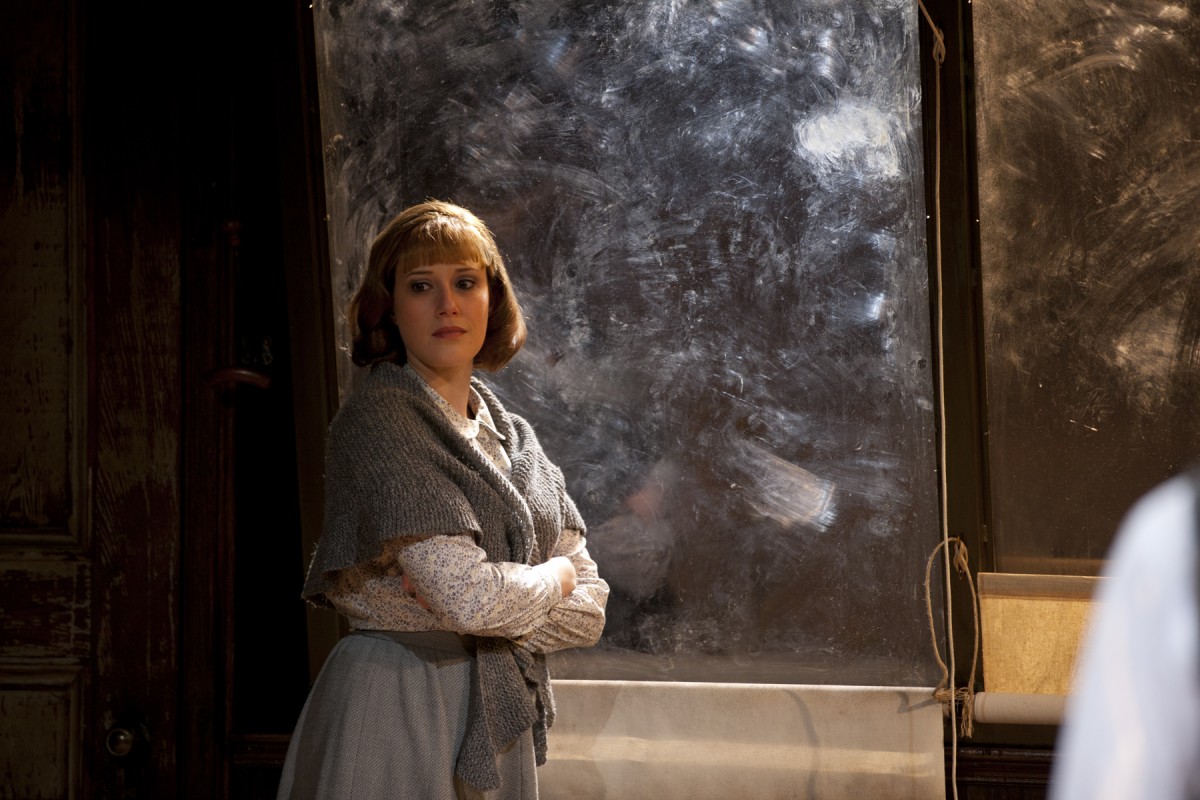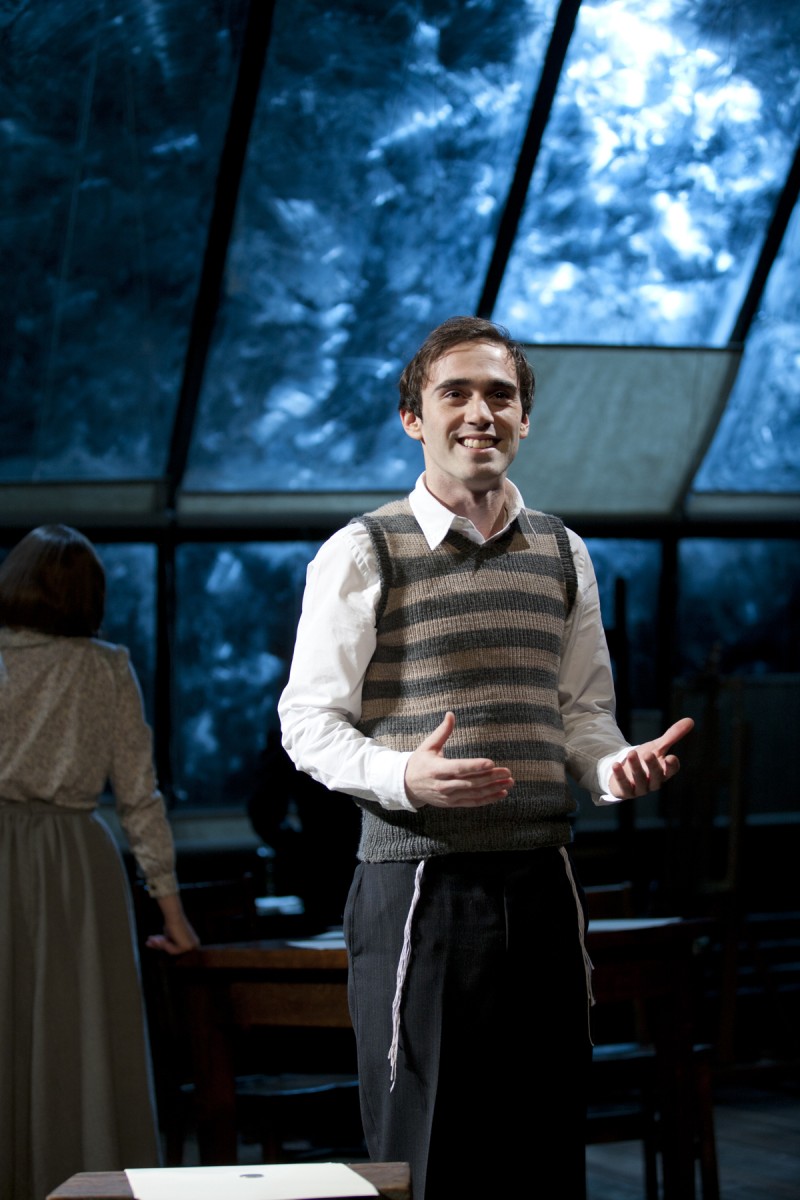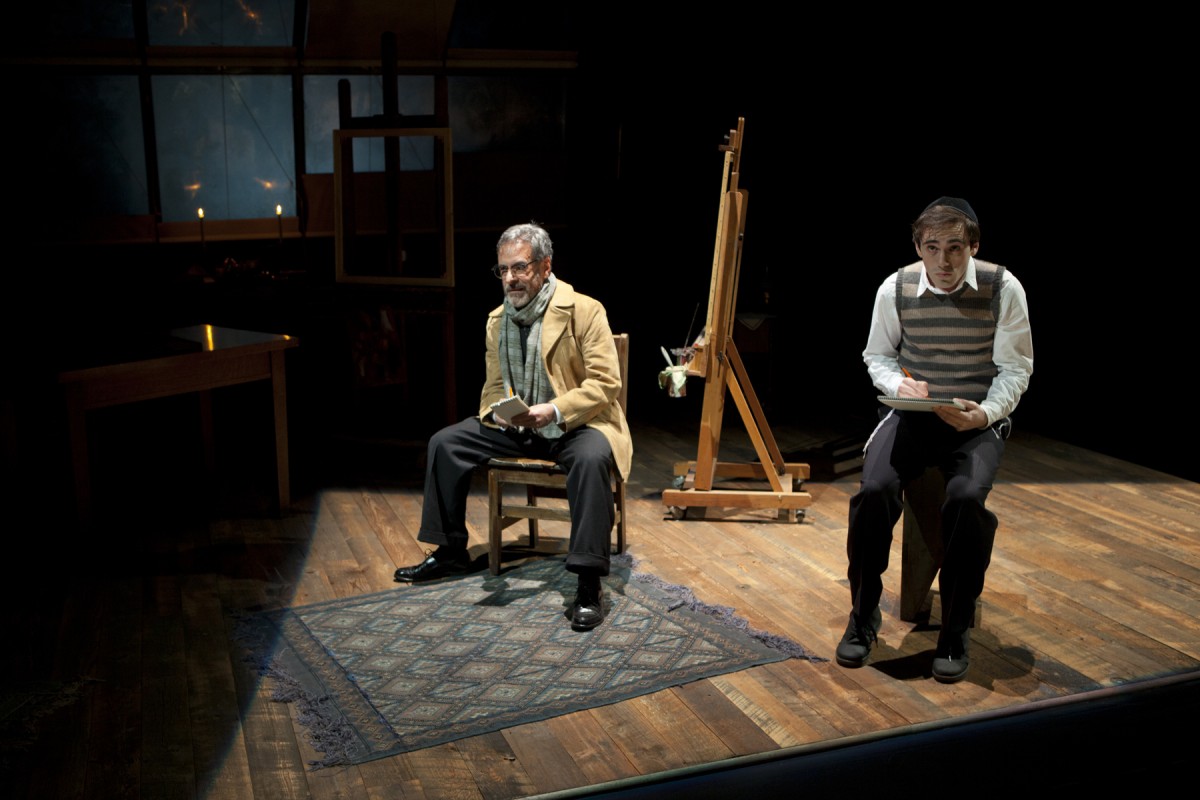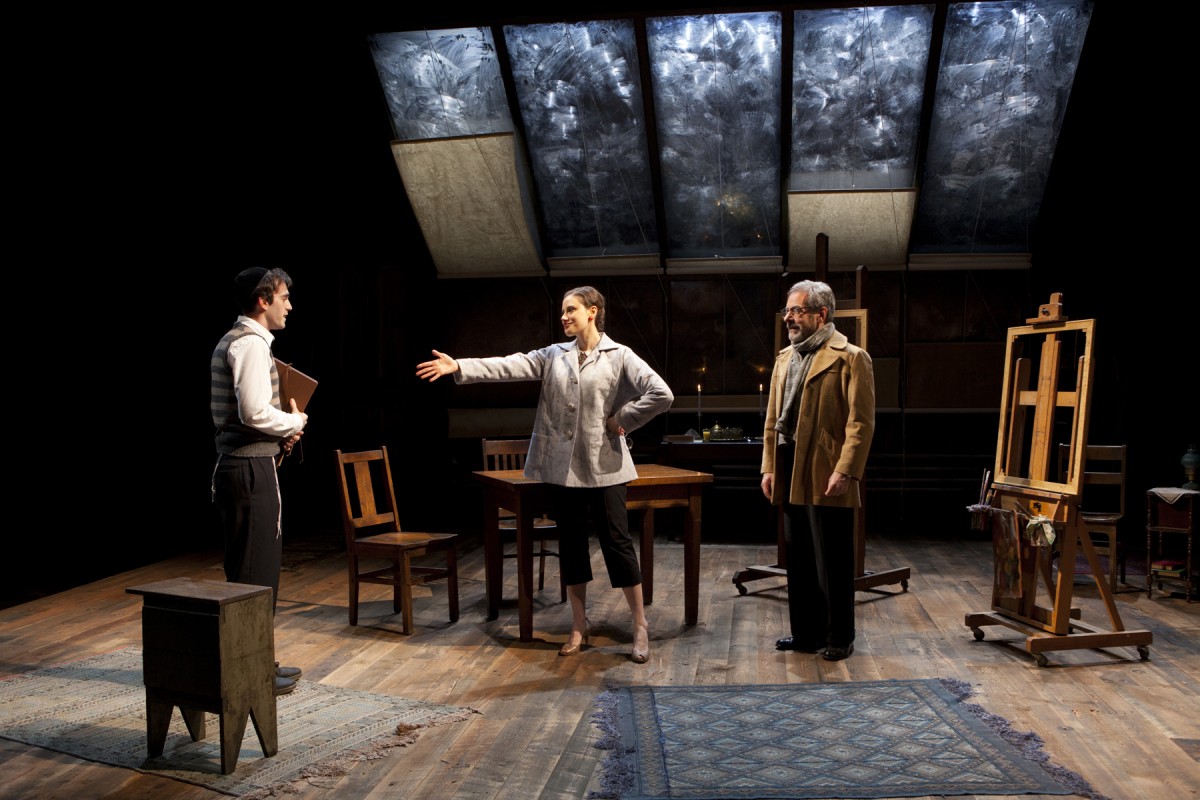Chaim Potok’s novel My Name is Asher Lev tells the age-old tale of youthful rebellion in the name of art. Like James Joyce’s Stephen Dedalus, Asher is a young man with a vocation to express himself creatively. His destiny impels him to become a painter, even at the risk of offending his parents and his religious community. But unlike Stephen, Asher remains within his faith, an orthodox Jew with very unorthodox views on what subject matter is permissible in his art. Thus, in a sense, Potok gets to have it both ways: rather than telling a story like Joyce tells—in which a religion of art must substitute, in Catholic Ireland, for a lost religious faith—Potok lets Asher articulate his faith in art as an aspect of his larger faith in Man, and in his own people, and in their G*d. And yet, in the end, Asher must still wrestle with his parents’ inability to understand his intentions, and walk the solitary path of the artist driven by his own conscience.

If this sounds like a romantic tale, it should. Aaron Posner’s adaptation of My Name is Asher Lev, onstage at the Long Wharf, takes place in a world where talent is acknowledged and reaps the admiration of the world—a success story wherein the problem is not a struggle with the goyische world of art critics and buyers, but with the orthodox views that would have Asher stifle such things as his tendency to depict nudes and, even more outrageously for his family and the fictional Ladover Hassidism of which his father is a member, crucifixions. In other words, struggle is of the essence of art in Potok’s story: if not a struggle to become an artist, than a struggle over subject matter.
The stakes are raised through introduction of the Hassidic concept of “sitra achra”: an expression for any interest that leads away from righteousness to the “other side” of the Almighty, the forbidden areas of life and thought, like the one our first parents explored so memorably in the Bible by partaking of the Tree of Knowledge.
As might be clear from all this exposition, My Name is Asher Lev, as a play, sins against the notion that one should limit exposition in theater. The entire play is narrated by Asher, and his address to us, explaining himself, is illustrated by enacted scenes to dramatize the conflicts. And that’s where the value of a theatrical rendering of the story becomes evident. In contrast to a first-person novel, the play more directly lets us, if we are so inclined, see other characters’ points of view as more valid than Asher’s. Granted, we have to believe in his sincerity, otherwise he’s simply a willful trouble-maker. But we might question, at any point, his methods and his motivations. And that makes for a complex, thinky night of theater.
We might say that director Gordon Edelstein has chosen to the let the conceptual aspects of the material inhere in its themes rather than in its dramatization. The staging takes place with a cast of three on one versatile set—light and colors and sound (Eugene Lee, set; Chris Akerlid, lighting; John Gromada, sound design) all play an important and effective part in helping us feel the various stages of Asher’s journey. And while alternations of direct address and illustrative interactions might have made for a lockstep production, Edelstein and his team make wonderful use of tableaux, using the power of retrospect to infuse simple moments—Asher’s mother’s ritual farewell to her oft-traveling husband, the coin an uncle pays for Asher’s first sold drawing, Asher’s mother waiting by the window, Asher’s interview with the Rebbe, and his first meetings with an art agent and with an artist’s model—with talismanic power. Everything he tells us, Asher tells us for a reason, but it’s left to us to decide what the things Asher tells us show us of his character.
Key to this production is Ari Brand, memorable and marvelous as Asher. Maintaining a confessional tone of thoughtful and considered declaration, he keeps us in the palm of his hand throughout. Brand, darkly good-looking, earnest, passionate, is a beguiling guide to Asher’s life, but he also is able to show us the steely and unyielding aspects of Asher, even the obtuseness that makes him at times unfeeling of others. It’s a portrayal of considerable skill and force, keeping us anchored to the play through the careful unfolding of Asher’s growth.
As Asher’s father, Ari, Mark Nelson is a cautious, serious man, very human in his frustration and disappointment with the path his only son takes, but it is as Asher’s mentor, Jacob Kahn, that he truly shines. The attitude of the older Jewish painter to his protégé is full of gentle irony and affectionate, but also wary, admiration; it’s a finely nuanced portrayal and the scenes between Asher and his teacher are some of the most appealing in the play, as is Asher’s audience with the Rebbe (also Nelson), an important scene in which we see that Asher need not always struggle against incomprehension. The Rebbe’s wisdom is a saving grace, but it can’t save Asher from his need to conquer Western art—which means painting nudes and an image of suffering, drawing upon the crucifixion of Christ, that offends his parents deeply. (Asher’s insistence on figural art is a bit odd, given that this is the era of Abstract Expressionism, a time when, more than ever in the history of art, a painter could follow a proscription against images and thrive).
As Asher’s mother, Riv, Melissa Miller does fine work as well, particularly in a subplot in which Riv loses her beloved brother and then later studies to continue his work. While accepted in her plans—indeed, the Rebbe helps her implement them—there is a sense in which Riv, like her son, has a tendency to somewhat original behavior. Miller also adds interest to the show by briefly playing characters who are not patiently maternal and wifely—Anna, the artist’s agent who finds Asher’s art intriguing but his orthodoxy amusing, and the artist’s model who is the first woman to ever disrobe for the boy.
As a carefully delineated portrayal of a particular culture, the play is fascinating. And in its focus on intergenerational familial struggle, and the struggle between orthodoxy and secular passions, Asher Lev takes on classic themes that, though ostensibly 1950s, feel a bit Turn of the Century. Stalinism, in full force in this period, is invoked a few times, but not Freudianism—and yet a less pious production might have made something of the fact that, thanks to casting, every male is for Asher a father figure, and every woman, mom.
My Name is Asher Lev By Aaron Posner Adapted from the novel by Chaim Potok Directed by Gordon Edelstein
The Long Wharf Theatre May 2-27, 2012




